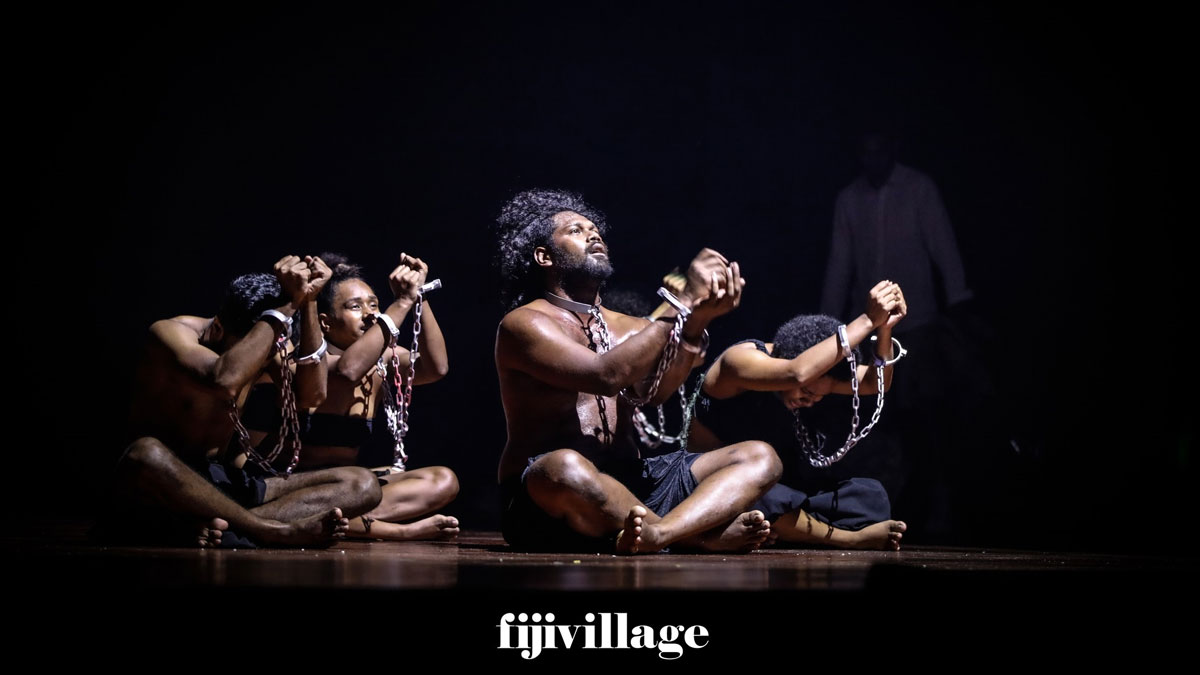
Human trafficking has a long history in Fiji, dating back over 150 years to the era of indentured labour and blackbirding, when many were forcibly brought to Fiji and exploited for labour.
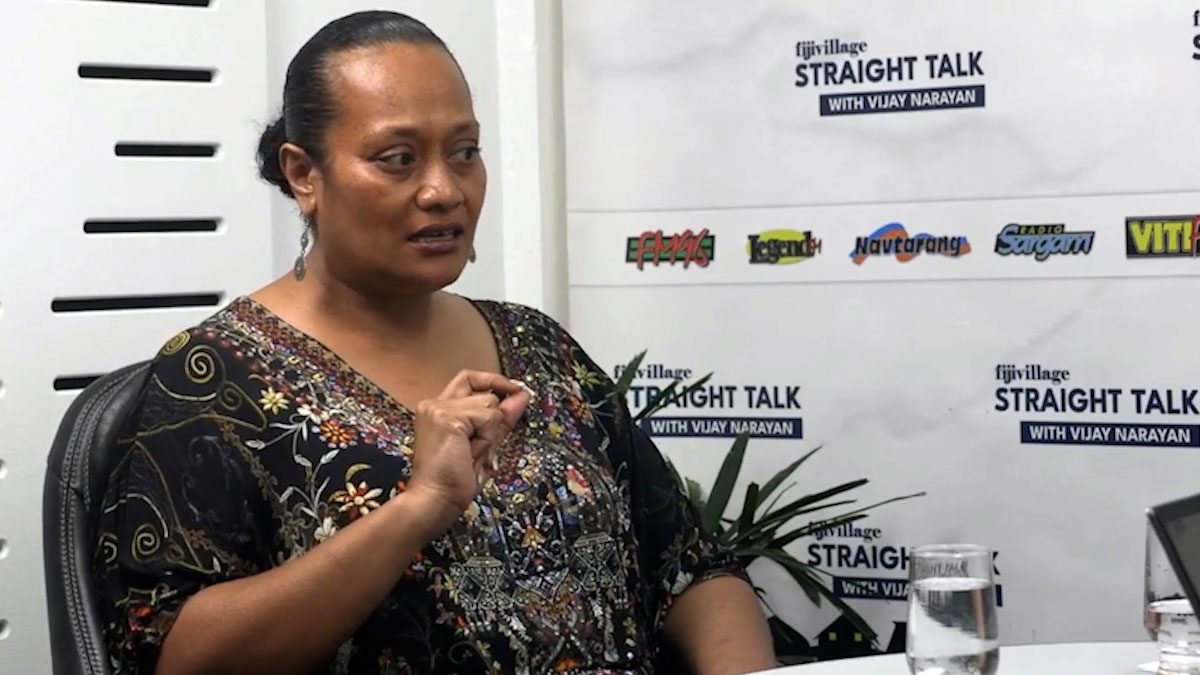
Some people in society push away human trafficking victims without knowing their story, and this is because of the lack of information within the society.
This was highlighted by the Butakoci Production lead, Talei Draunibaka during fijivillage Straight Talk with Vijay Narayan and she stressed that the only thing people consider is that a particular person is participating in a human trafficking act and would not want to be associated with them.
Draunibaka says one thing that stands out for modern-day trafficking is the fact that even when they are trying to go to society or to people closest to them, they are pushed away.
She says society and individuals can change this by creating dialogue.
When asked what she noticed on the ground, Draunibaka responded that human trafficking is not new, it started with the Girmit era in Fiji, which was one of the reasons why she focused on women in the Butakoci Production.
She says people who came through the Girmit era went through atrocious treatments, and the way they were treated is unbelievable.
Draunibaka says women were constantly trying to protect themselves but did not have the freedom or the ability to do so, and it didn't mean the other gender didn’t suffer.
She says during the Girmit era, men were sold for 45 rupees and women for 55 rupees.
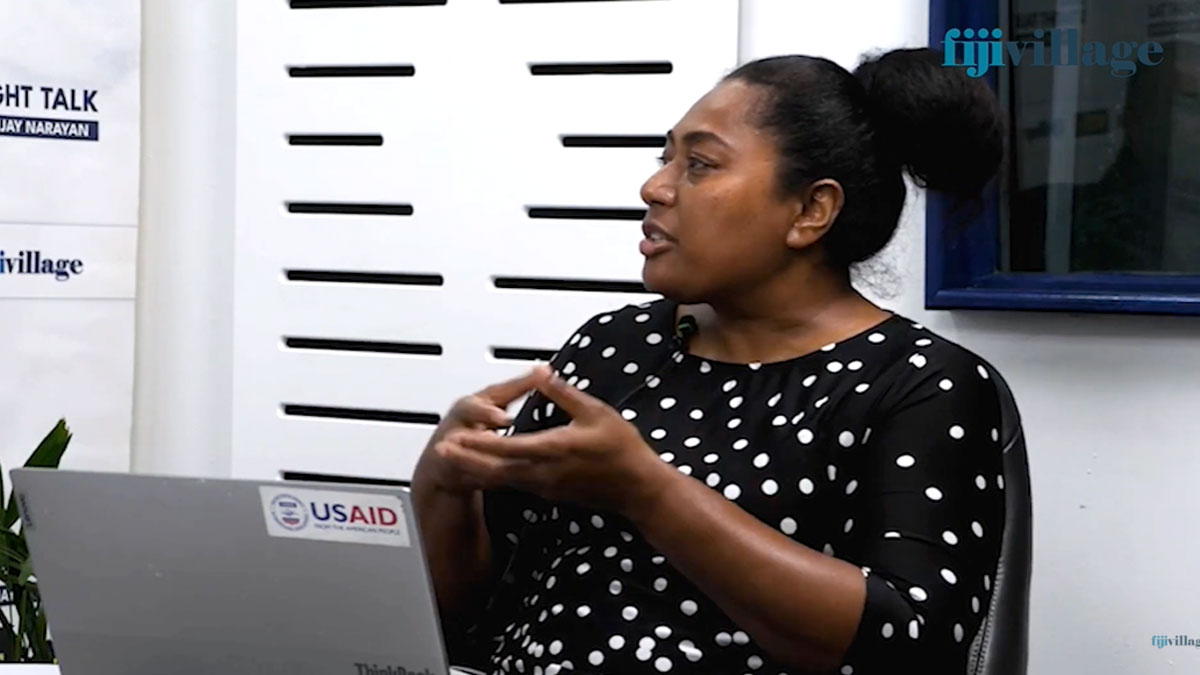
Young girls used for human trafficking don’t even understand that it's a crime – Rasuaki
As we mark World Day Against Trafficking in Persons today, it has been revealed that there have been many cases where girls from Fiji have told their stories regarding human trafficking and, unfortunately, they do not understand that it is a crime.
Asia Foundation Program Officer, Nanise Rasuaki highlighted this on fijivillage Straight Talk with Vijay Narayan when asked about what she has found out on the ground about human trafficking while working with the non-government organisations.
Rasuaki says when she was working with a particular NGO, she had a case where a 15-year-old girl was sold for cash and cases that come to the NGO are usually dealing with sexual exploitation.
The Program Officer further says when we talk about human trafficking there is an act, the means and the purpose which involves three elements and the act is usually through harbouring, transferring movement of a person and through coercion and manipulation.
USAID says with a rising incidence of trafficking in persons within, between, and into Pacific Island Countries, the region has become a source, transit point, and destination for human trafficking.
They say the Pacific Regional Initiative and Support for More Effective Counter Trafficking in Persons (“Pacific RISE-CTIP”) program strengthens TIP prevention, protection, and prosecution through a holistic, multi-sectoral approach that engages government, civil society, and the private sector.
The initiative prioritizes Fiji, the Republic of the Marshall Islands, Tonga, Papua New Guinea, and Palau.
Working closely with USAID, The Asia Foundation provides strategic, programmatic, and financial oversight of the project.
They say Fiji is a source, destination, and transit country for men, women, and children subjected to sex trafficking and forced labor.
Geographically, Fiji has an extensive porous border with a vast maritime zone that makes it vulnerable to trafficking in persons as a transit and destination country for men, women, and children.
In the 2024 Department of State Trafficking In Persons Report, Fiji is ranked Tier 2 watchlist.
Pacific RISE-CTIP addresses TIP in Fiji by strengthening prevention, protection, and prosecution mechanisms and strategies through close collaboration and partnerships with the Fiji TIP Interagency National Trafficking Committee (INTC) to implement Fiji’s National Human Trafficking Strategy 2021-2026 and National Action Plan to Combat Human Trafficking 2021-2026.
Rasuaki says the thought process of Butakoci Production regarding the concept of human trafficking started in 2013 when she understood the lyrics of the song ‘Lai tei dalo ko tamaqu’ and wanted to raise awareness on what trafficking in persons is and that trafficking in persons is not something new.
Rasuaki says human trafficking is the modern-day slavery part, it is not a new concept as it has been in the country since the 1800s in the form of the Girmit era and Blackbirding.
She adds that she contacted Butakoci theatrical musical production lead, Talei Draunibaka to create the concept and implement it into a musical theatre production.
You can also watch the Butakoci Production video on our facebook page and YouTube channel, fijivillage from 7pm tonight.

In a powerful move to raise awareness about human trafficking, the Butakoci Production has released the single "I Am Free" which is now playing on LegendFM and FM96.
Performed by the talented Talei Draunibaka and featuring Phil Dakei, Kathleen Waqa, and Choir, the song serves as an anthem for the fight against human trafficking.
Aligned with the World Day Against Trafficking in Persons today, this initiative emphasizes the 2024 theme, "Leave no child behind in the fight against human trafficking."
Draunibaka says the song aims to inspire communities to unite and take action against this critical issue.
The "I Am Free" single is now playing on air.
This initiative is supported by the Fiji Government, USAID and The Asia Foundation Pacific RISE-CTIP.
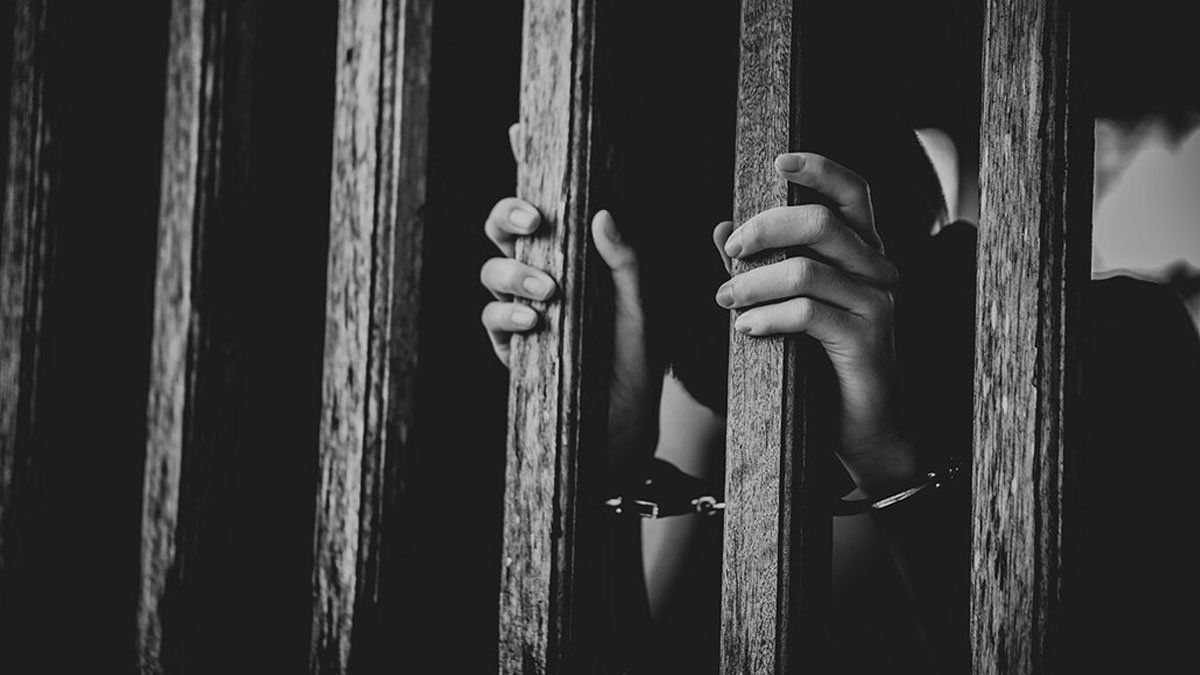
Serious questions are being asked on whether we as a country are doing enough to combat human trafficking as the US State Department Trafficking in Persons Fiji 2024 report says as reported over the past five years, human traffickers exploit domestic and foreign victims in Fiji, and traffickers exploit victims from Fiji abroad.
The report highlights that about 20 percent of respondents to a 2023 prevalence study identified either experiencing themselves or knowing someone who experienced trafficking indicators in the hospitality, retail, wholesale, food service, vehicle maintenance, storage, transportation, construction, agriculture, fisheries, or forestry sectors.
It reveals that traffickers, including family members, taxi drivers, foreign tourists, businessmen, crew members on foreign fishing vessels, and other traffickers exploit foreign victims, including from Thailand and China, as well as Fijian women and children in sex trafficking.
The US State Department report says traffickers exploit victims in commercial sex establishments, hotels, private homes, and massage parlors, and sometimes utilize websites and cell phone applications to facilitate the exploitation of sex trafficking victims.
Traffickers exploit Fijian and Chinese national women and children in Chinese national-operated massage parlors and commercial sex establishments, particularly in Suva.
It further says in some cases, massage parlor owners arrange for female Fijian employees to engage in commercial sex acts with clients in hotels or commercial sex establishments.
The report says some Fijian children are at risk of sex and labour trafficking as families follow a traditional practice of sending them to live with relatives or families in larger cities, where they may be exploited in domestic servitude or sex trafficking in exchange for food, clothing, shelter, or school fees.
Foreign yacht owners and foreigners hiring locally owned yachts dock in rural Fijian islands and seek young women, usually children, for marriage; some of these women and children subsequently become exploited in forced labour or sex trafficking.
Children as young as 12 were exploited in sex trafficking, sometimes by family members to purchase food and other essentials for their families.
Some Fijian men also reportedly marry women from Nepal and Pakistan and exploit them in domestic servitude in Fiji.
It has been revealed that labour traffickers exploit workers from South and East Asian countries, including Bangladesh and India, in small, informal farms and factories, as well as in the construction and timber sectors.
The US State Department report adds that Chinese nationals may have been forced to work in Fiji at projects run by Chinese-affiliated companies.
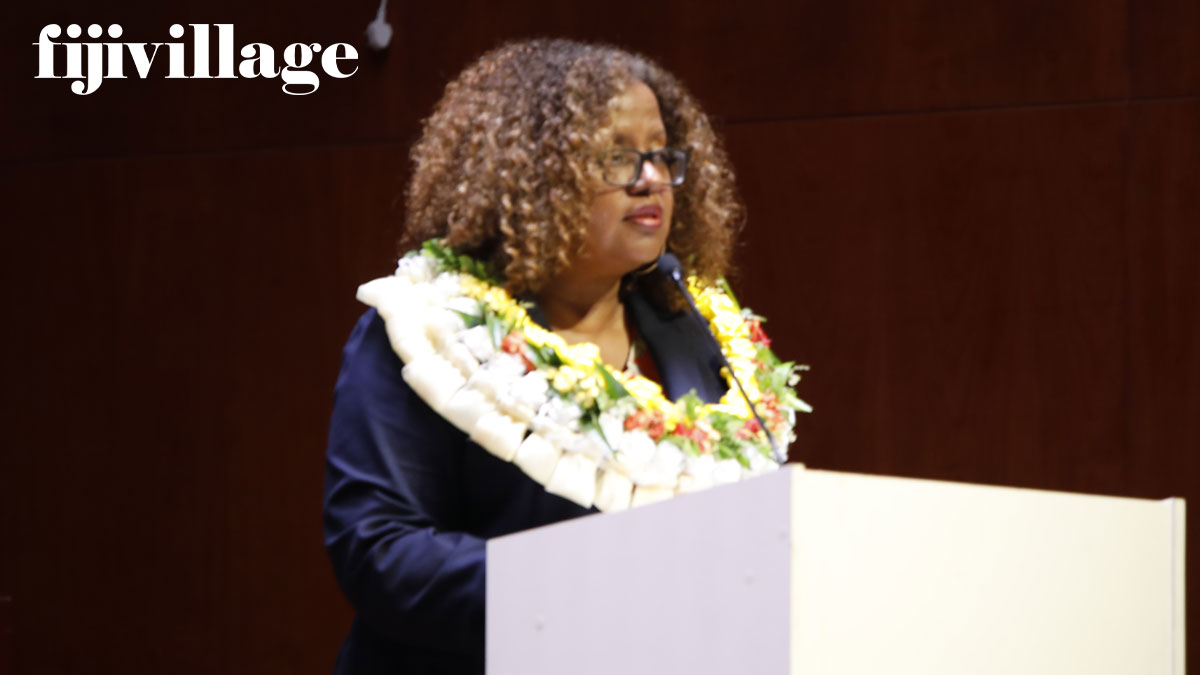
USAID Pacific Islands Mission Director, Zema Semunegus is encouraging the Fijian government to activate a National Referral Mechanism System that will enable awareness within communities to access services, support, and more information on human trafficking.
Semunegus stressed this during the premiere of Butakoci Production at Suva Civic Centre which highlighted the dark realities of human trafficking.
The USAID Pacific Islands Mission Director says the National Referral Mechanism System will provide a more efficient and reliable system for suspected residents to be reported confidentially.
She says a system such as this would not only drive Fiji but the region as a whole, towards the commitment of securing the well-being of the people and a core objective of the 2050 Strategy for the Blue Pacific Continent.
Semunegus says the Butakoti Production through their creativity bring a vital message to life and a very innovative approach to tell a compelling story that will hopefully raise awareness, create dialogue and prompt crucial action.
She says it is the sad truth that the incidence of trafficking in persons in the Pacific continues to rise and it is a transit point and a destination for human trafficking, for purposes of sexual exploitation and forced labour, particularly in local extractive industries.
Semunegus further says slavery and forced labour are forms of trafficking in persons that often go unnoticed by relevant authorities and may involve abuse, injury, and even death.
She adds that eliminating modern forms of slavery and trafficking in persons is everybody's responsibility.
People can register online for the free shows tomorrow and Friday at 6pm at Suva Civic Centre.
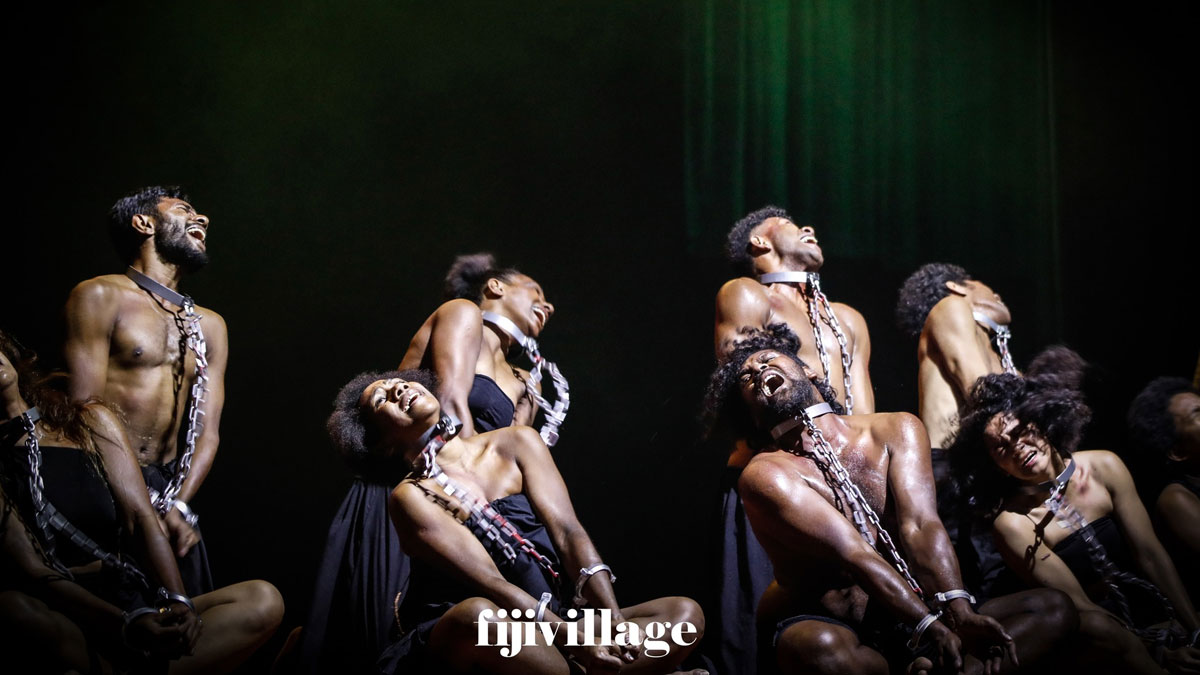
There is a need to eliminate the dark realities of human trafficking that devastate lives and communities, and the historical injustice reminds us to confront and address past problems.
Minister for Home Affairs and Immigration, Pio Tikoduadua highlighted this while speaking during the premiere of Butakoci Production at Suva Civic Centre.
Tikoduadua says many indentured labourers and Pacific Islanders were constantly tricked, and the grim reality of human trafficking continues to plague our world today.
The Minister says many of these individuals came from neighboring countries such as Vanuatu and the Solomon Islands on promises of fair wages but often faced harsh and inhumane conditions.
He says the suffering of those who died reminds us of the human cost of such exploitation, and communities continue to call for recognition and justice.
The Minister says this crime also exists within our own communities and industries, and art has the unique ability to bring critical issues to the forefront of public consciousness.
He says the use of dance, music and storytelling has long been a means of educating communities and advocating for change.
Butakoci Productions displayed how indentured labourers and black birding affected lives and how modern day human trafficking is a serious issue in Fiji and world.
The Mata, Shobna Chanel and USP dance groups participated in the production.
People can register for the free shows on Thursday and Friday at 6pm at Suva Civic Centre.
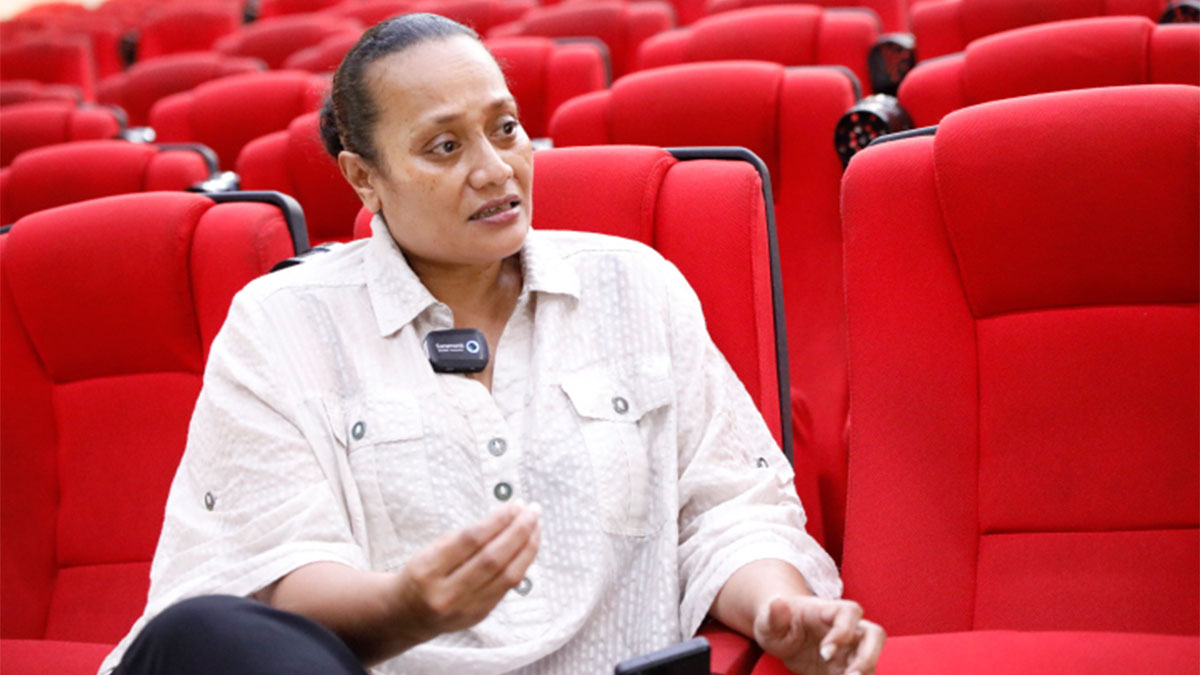
Final preparations are underway for Butakoci Production which is a theatrical musical that addresses the critical issue of human trafficking in Fiji, and for the country to break the culture of silence that is being practiced for years.
Renowned local artist, Talei Draunibaka who is leading the production says by combining music, dance, and storytelling, Butakoci Production aims to raise awareness about human trafficking, both historically and in contemporary contexts.
Draunibaka says the production seeks to educate and engage audiences, encouraging them to reflect on and take action against this serious issue.
She highlights it is a really dark situation when it comes to human trafficking in Fiji where most of the cases are being committed by the people who know the children being trafficked.
The musical component features original compositions by Talei Draunibaka, with Katheleen Waqa, and Savuto Vakadewavosa’s input.
Viveka Nand co-wrote and composed the melody of the Hindi song.
Phil Dakei, the Butakoci Team Recording Engineer, integrated all suggestions to create the final songs that will be presented at the show.
Draunibaka says Butakoci uses the power of the arts—music, dance, and drama—to engage audiences emotionally and intellectually.
She says by presenting compelling narratives, it seeks to highlight the human aspect of trafficking, encouraging viewers to reflect on the issue and consider their role in addressing and preventing human trafficking in their communities.
She says human trafficking has a long history in Fiji, dating back over 150 years to the era of indentured labour and blackbirding, when many were forcibly brought to Fiji and exploited for labour.
Butakoci Production is led by with support from The Asia Foundation and funding from USAID.
Butakoci Production will premiere at 6pm tonight at the Suva Civic Centre, and people can register for the free shows on Thursday and Friday at the same venue.

Government ministers, officials, the diplomatic community, civil society and faith-based organizations, media, development partners, and Pacific RISE-CTIP regional staff will attend the premiere tonight.
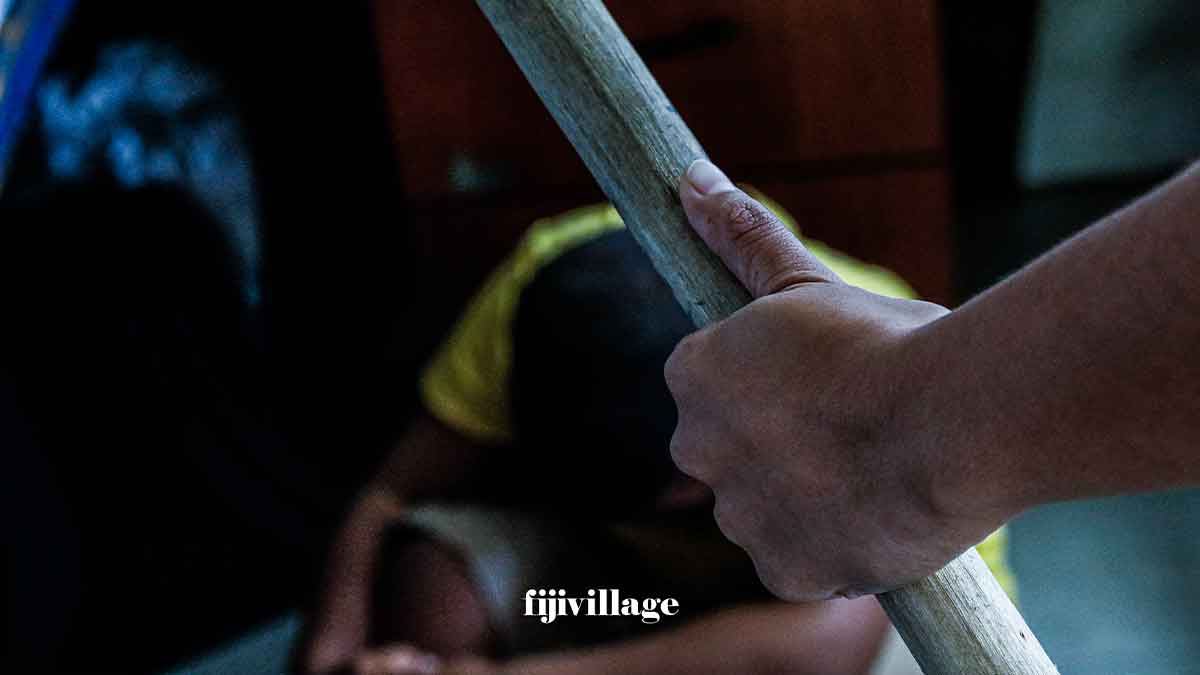
Some Fijian children are at risk of sex and labour trafficking as families follow a traditional practice of sending them to live with relatives or families in larger cities, where they may be exploited in domestic servitude or sex trafficking in exchange for food, clothing, shelter, or school fees.
The US State Department 2024 Trafficking in Persons Report has stated that foreign yacht owners and foreigners hiring locally owned yachts dock in rural Fijian islands and seek young women, usually children, for marriage; some of these women and children subsequently become exploited in forced labour or sex trafficking.
It has been highlighted that taxi drivers or other facilitators transport Fijian child sex trafficking victims to hotels in popular tourist areas or to private yachts at the request of foreign tourists seeking commercial sex acts.
The US State Department report says Fijian children are at risk of forced labour in agriculture, retail, or other sectors.
It says rising levels of poverty also contributed to increased risks of Fijian children being exploited in commercial sex and forced labour.
It highlights that the economic crisis related to the pandemic, as well as recent natural disasters, increased the number of children who were driven to use the streets as a source of livelihood or compelled to seek incomes to sustain their families; these children are at risk of being exploited in sex trafficking or forced labour.
The US report says children as young as 12 were exploited in sex trafficking, sometimes by family members to purchase food and other essentials for their families.
It says media reports indicate an increase in online child sexual exploitation, some of which may involve child sex trafficking.
We have sent questions to Prime Minister Sitiveni Rabuka, Deputy Prime Minister Professor and Minister for Finance Professor Biman Prasad, Home Affairs Minister Pio Tikoduadua and Acting Commissioner of Police Juki Fong Chew.

The US State Department’s 2024 Trafficking in Persons Report for Fiji has stated that Fiji has been downgraded to Tier 2 Watch List as the Government of Fiji does not fully meet the minimum standards for the elimination of trafficking but is making significant efforts to do so.
It says these efforts included initiating development of victim identification Standard Operating Procedures, convicting two child sex traffickers in one case, conducting research to assess the scope of the country’s trafficking problem, conducting awareness raising activities, and providing training to labour inspectors.
However, the US State Department states the Fiji government did not demonstrate overall increasing efforts compared with the previous reporting period.
It has highlighted that the government identified and assisted fewer trafficking victims.
The report says for the second consecutive year, the government did not identify any sex trafficking victims or initiate any sex trafficking investigations.
The government also did not implement or allocate resources towards its National Action Plan.
We have sent questions to Prime Minister Sitiveni Rabuka, Deputy Prime Minister and Minister for Finance, Professor Biman Prasad, Home Affairs Minister Pio Tikoduadua and Acting Commissioner of Police Juki Fong Chew.
Stay tuned for the latest news on our radio stations

